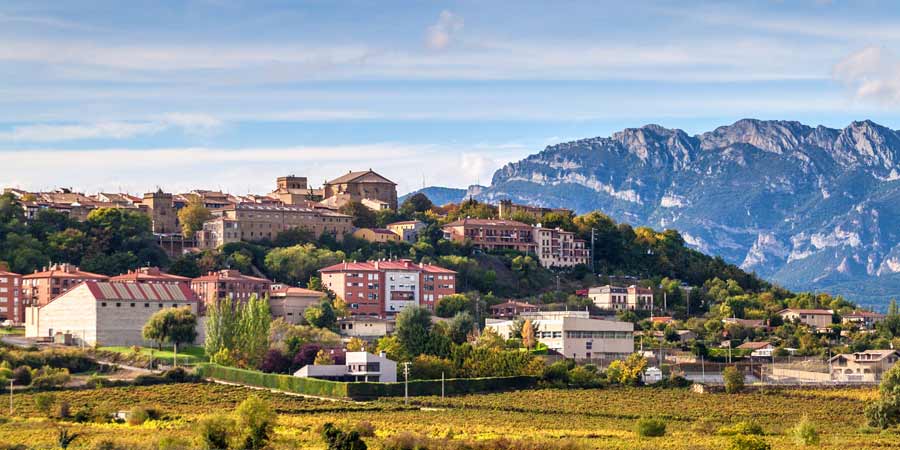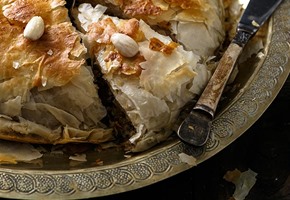The Basque region of Spain has proudly earned the reputation as the country's culinary capital. Boasting traditional ingredients presented in a modern style, Basque cuisine is fresh, flavourful and light, often putting the area's coastal location to good use with a range of delectable seafood. With La Rioja nearby, local restaurants have an ample supply of delicious wines to serve alongside exciting dishes, which range from unpretentious plates of simple, rustic food, to seven-course taster dinners designed to delight.
From pintxos and cask cider, to fine dining at famous bodegas (Spain's answer to French wine châteaux), Basque Country has a little something for everyone. With so much on offer, it's hard to determine where the best of Basque cuisine can be enjoyed, which is why we've compiled a shortlist of the region's most delicious highlights.
From surprising dishes, such as squid served bathing in its own ink, to simple offerings of cod and hake, salted or presented with a side of green pepper sauce, the Basque passion for fish is arguably unrivalled throughout Europe, with residents typically consuming four times as much local catch as their counterparts in nearby France. For a simpler taste, try cod "al pil-pil" (with parsley and garlic) or for more of a Basque Nouvelle flavour, look out for intriguing twists on "angulas" - fried baby eels.
The first bodegas of La Rioja were established during the Roman conquest around 200 BC, and have flourished in the centuries since. Although many Rioja wines are exported, there is a joy to exploring the vineyards where these grapes are grown, ripened and made into internationally-acclaimed wines, especially when accompanied by lunch at a local bodega.
Whilst wine here is serious business, Haro offers a silly celebration of this cornerstone of local culture. The Batalla de Vino, or Battle of Wine, is an annual tradition that takes place every June, wherein Haro residents dress in white - only to be soaked red with wine, most likely pitched by their neighbours. Similar to La Tomatina, the famous Spanish tomato- throwing festival, the Batalla de Vino is a celebratory food fight which participants enter strictly for good, messy fun.
One of the most charming aspects of Basque culinary culture, "txokos", male-dominated private gastronomic clubs, have a history dating back to 1870, where the first recorded txoko was set up in San Sebastián. Named after the Basque word for "corner" or "small place", these private nooks were once a refuge, wherein members could celebrate their outlawed heritage and Basque language. Modern txokos, whilst still celebrating this heritage, do so out of pleasure as oppose to persecution; the activities here focus on preparing and sharing meals, playing cards, drinking and socialising. Run collectively, members each pay towards ingredients, wine and the upkeep of a kitchen in which to cook.
Whilst typically only open to members, guests are sometimes invited to share a meal in the txoko, though are not usually permitted to cook. A less exclusive, but equally rewarding tradition, is a txikiteo - a sort of bar crawl, where instead of enjoying half a pint in each establishment, participants sample pintxos, a type of Basque tapas served on a cocktail skewer, in each stop on the route. Bite-sized and packed full of flavour, these moreish mouthfuls are a great way to taste a range of delicious local cuisine, perhaps washed down with Basque cider or txakoli, a fresh, slightly sparkling regional white wine.
For your very own experience of Basque culture and cuisine, why not try a tour of Gastronomic Spain? Enjoy exquisite lunches in the famous Marques de Riscal and the Michelin-starred Bodegas López Heredia, sample the wines of La Rioja in Haro, take a Tour of Tastes through beautiful Barcelona and even learn to cook your very own pintxos in San Sebastián on this tempting tour of Spain.





